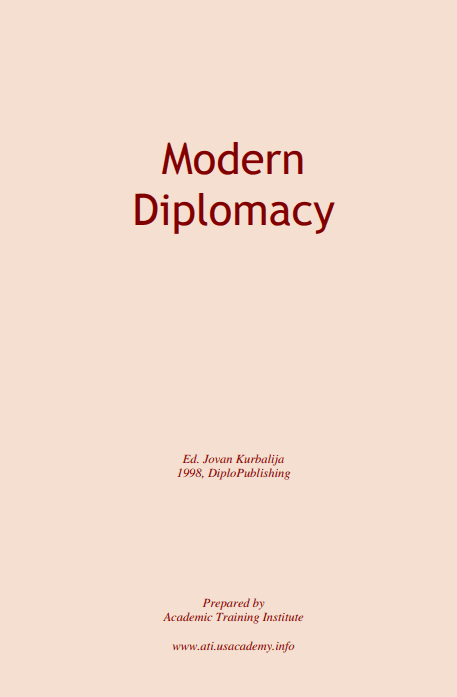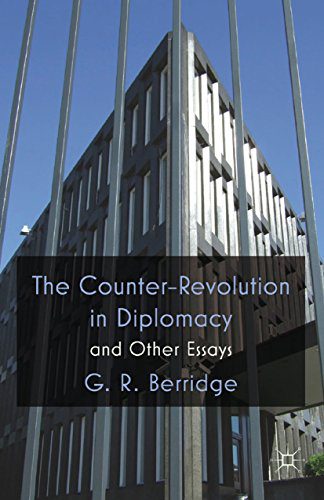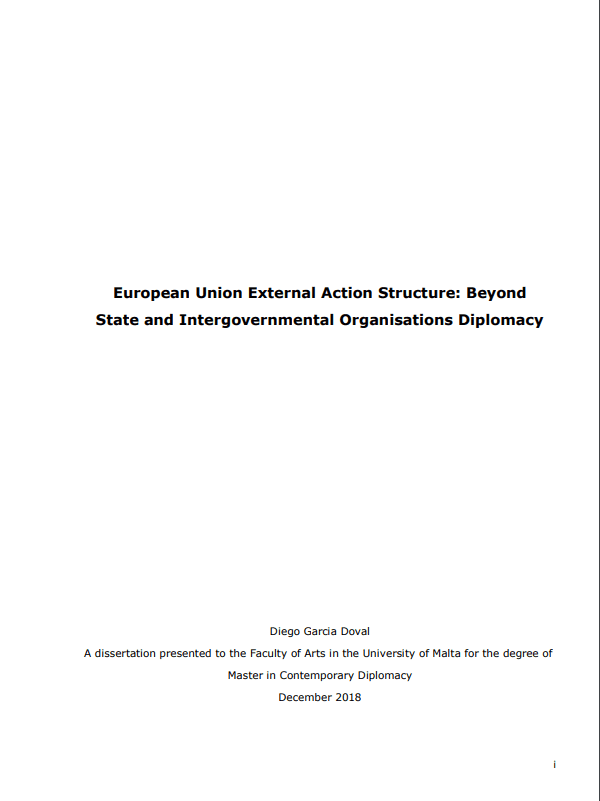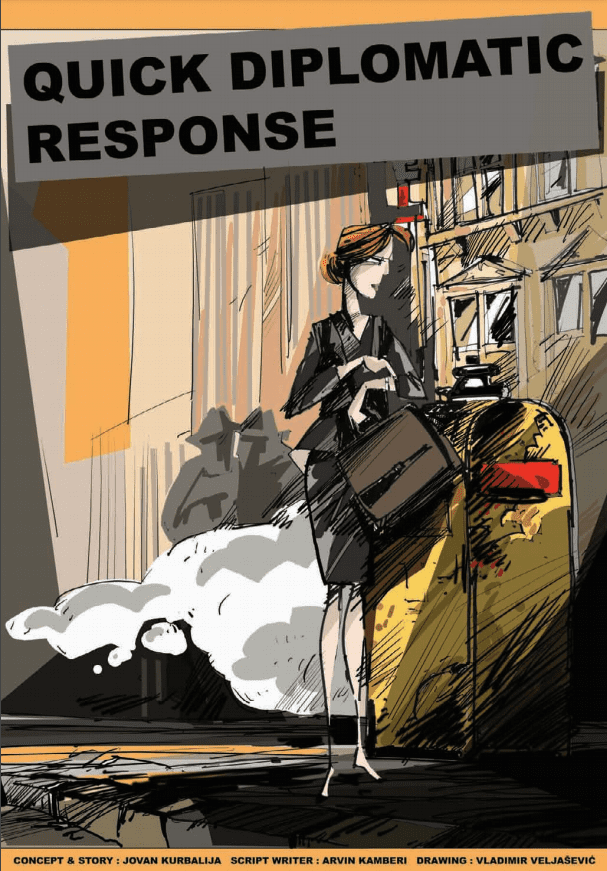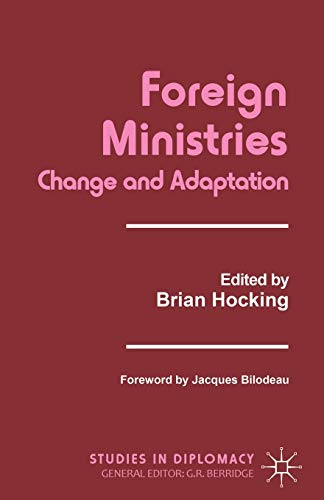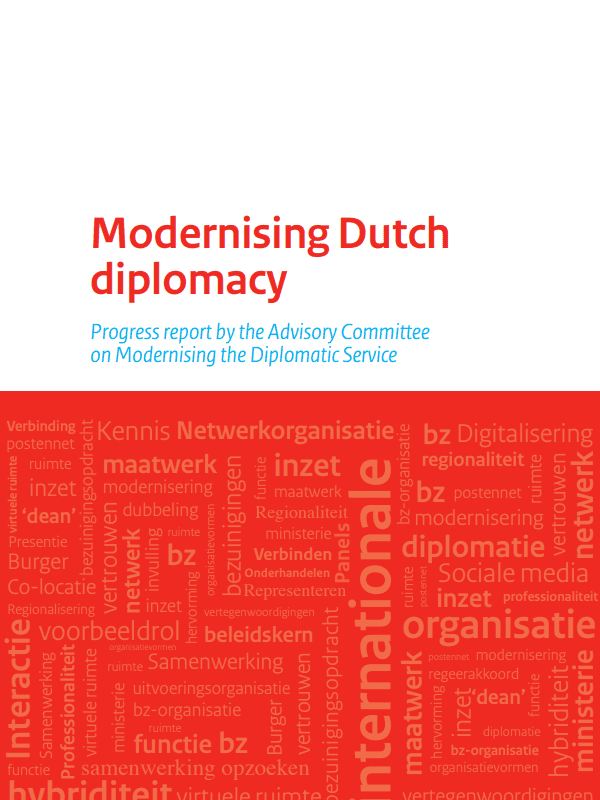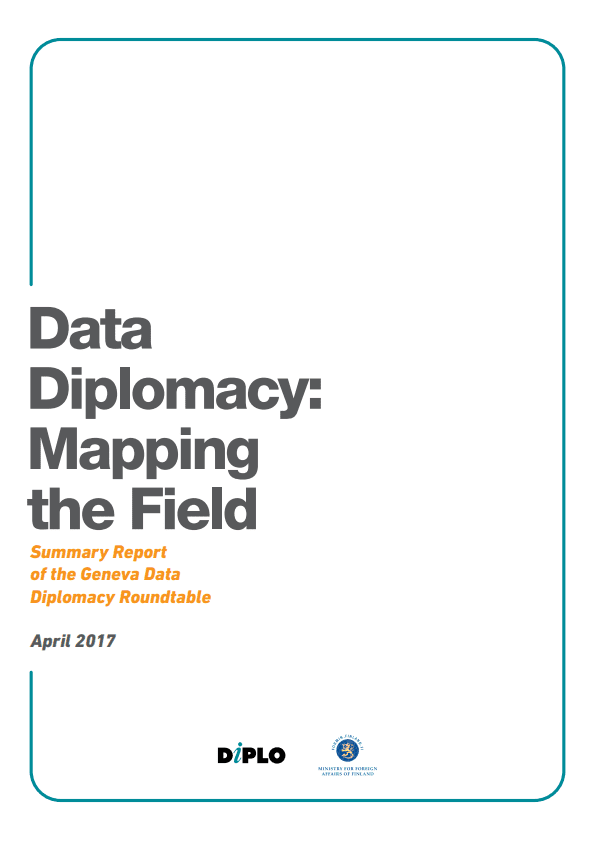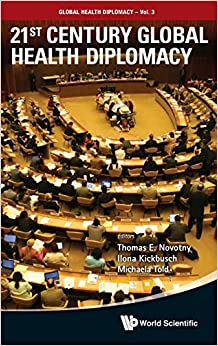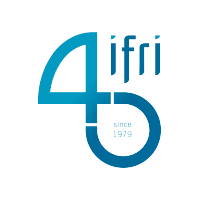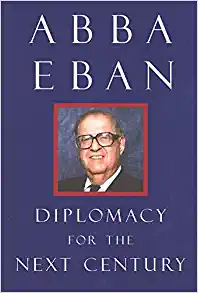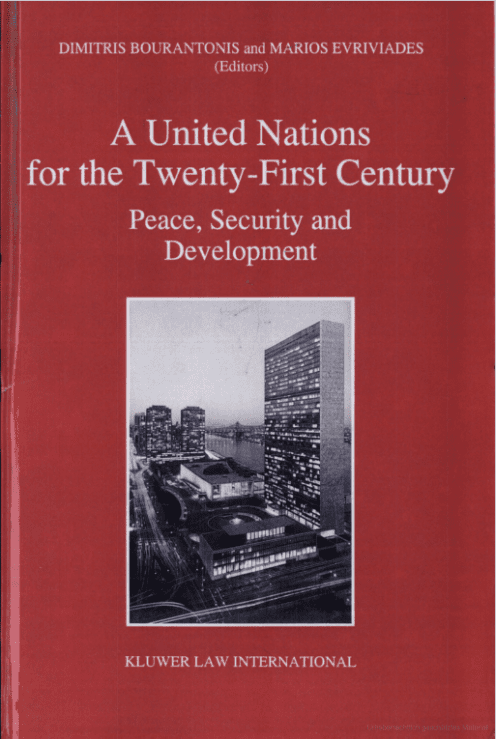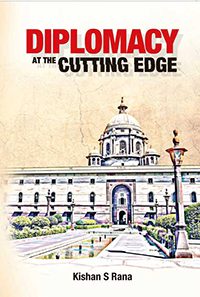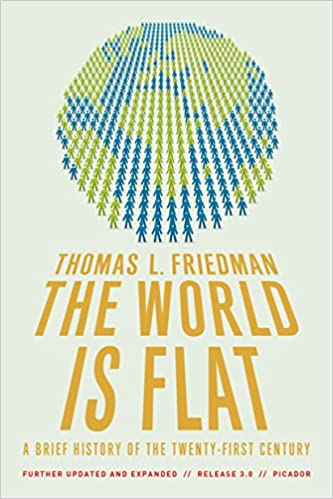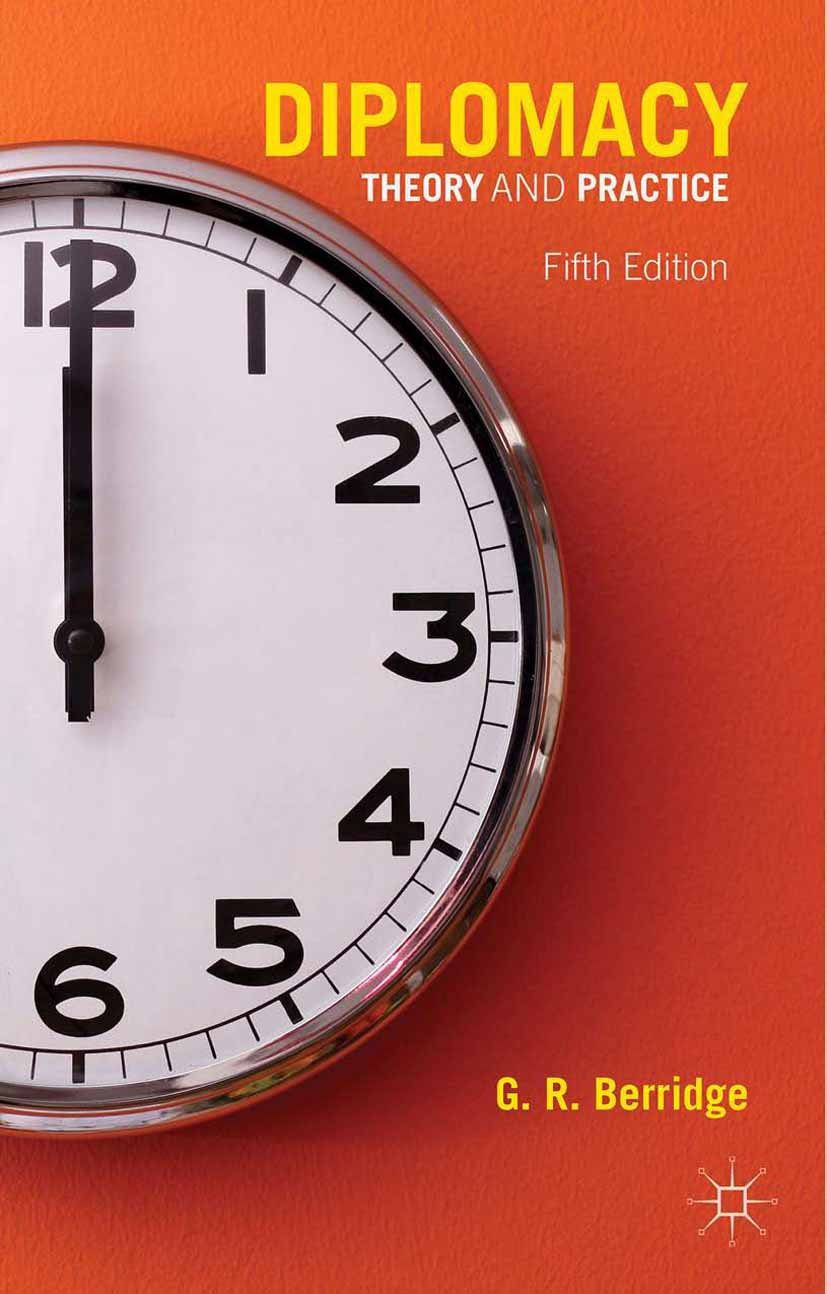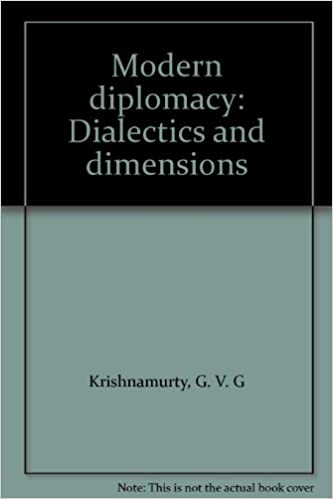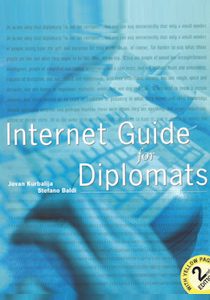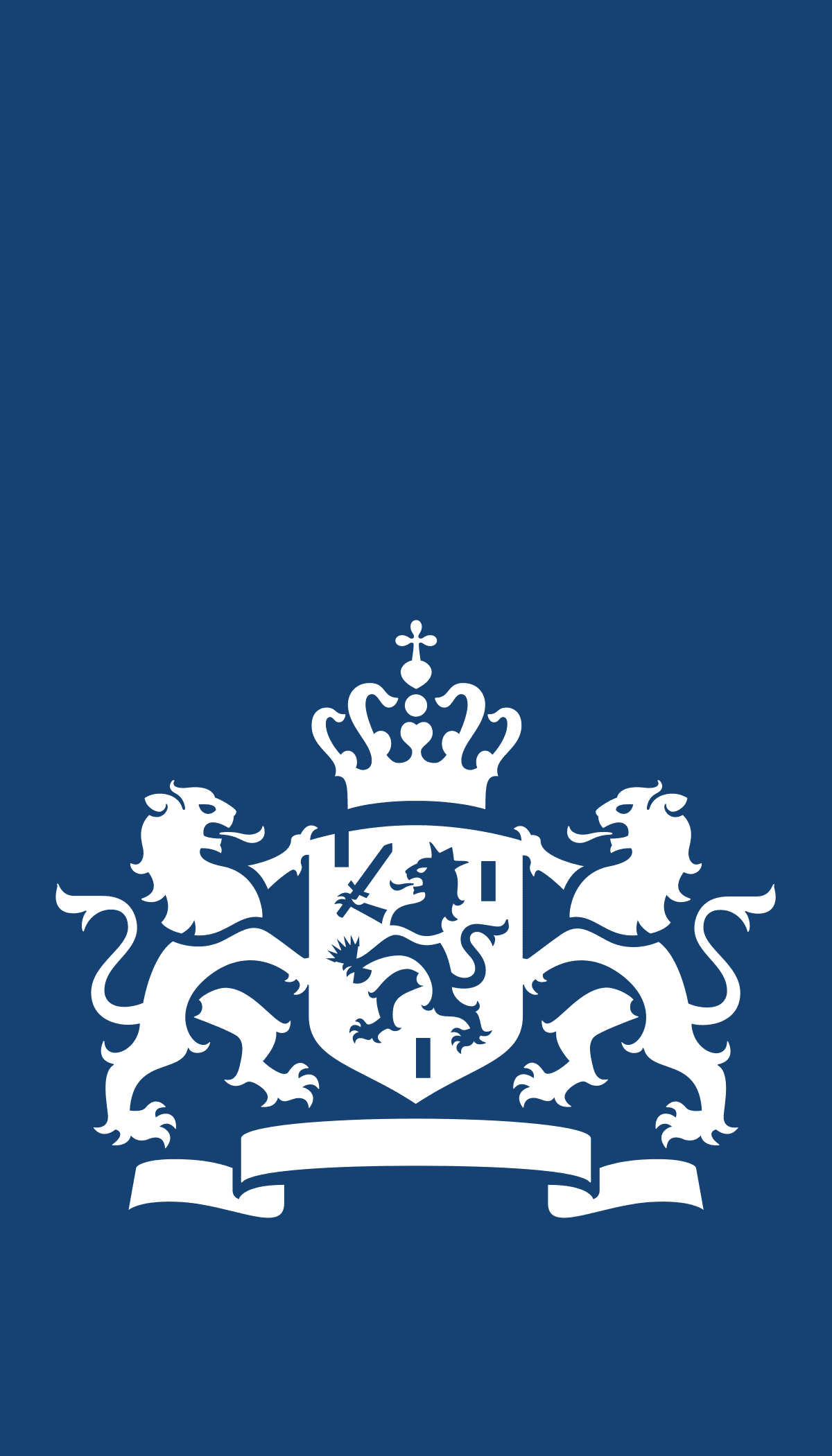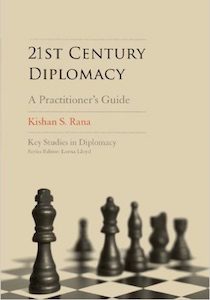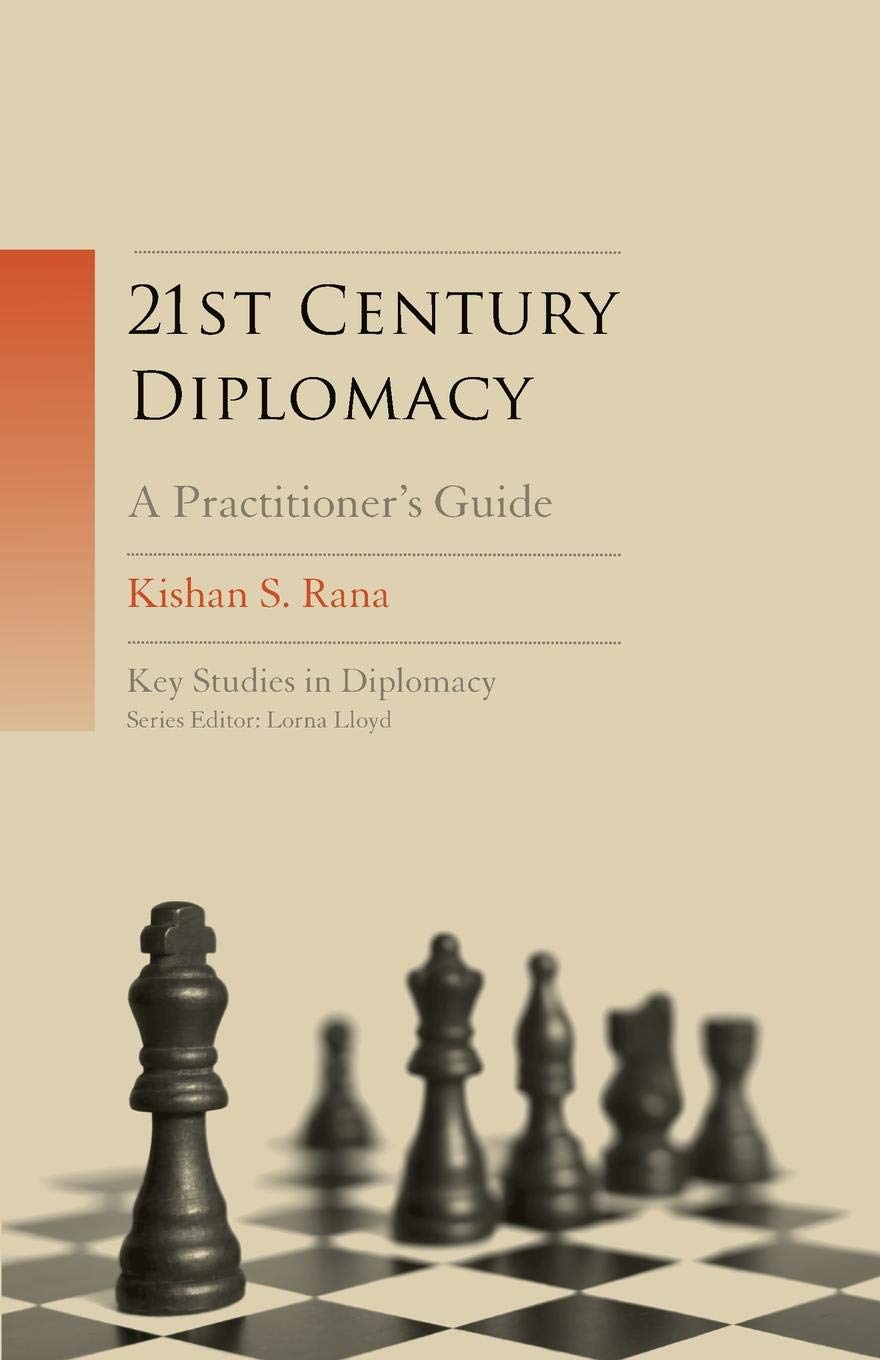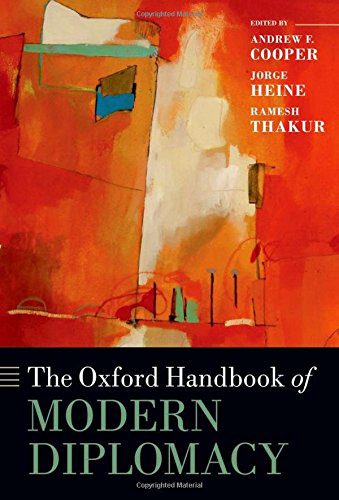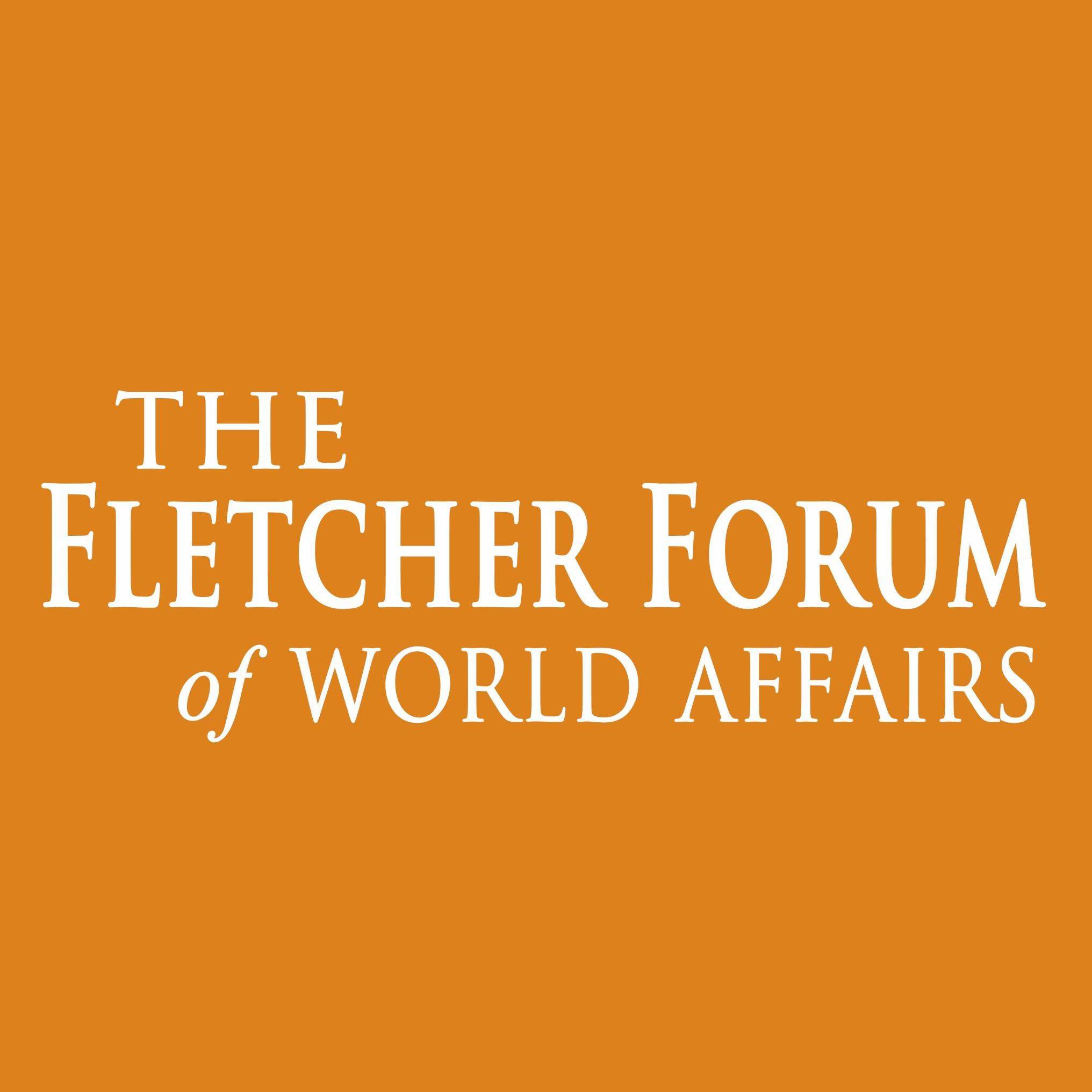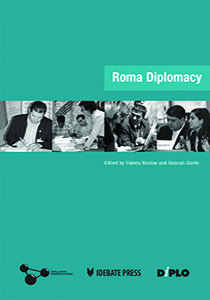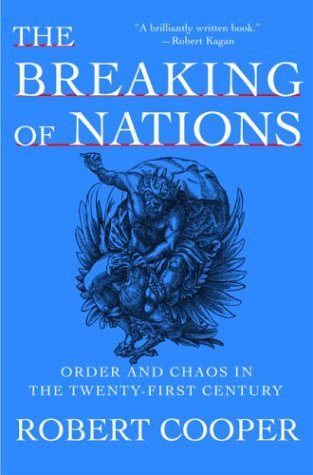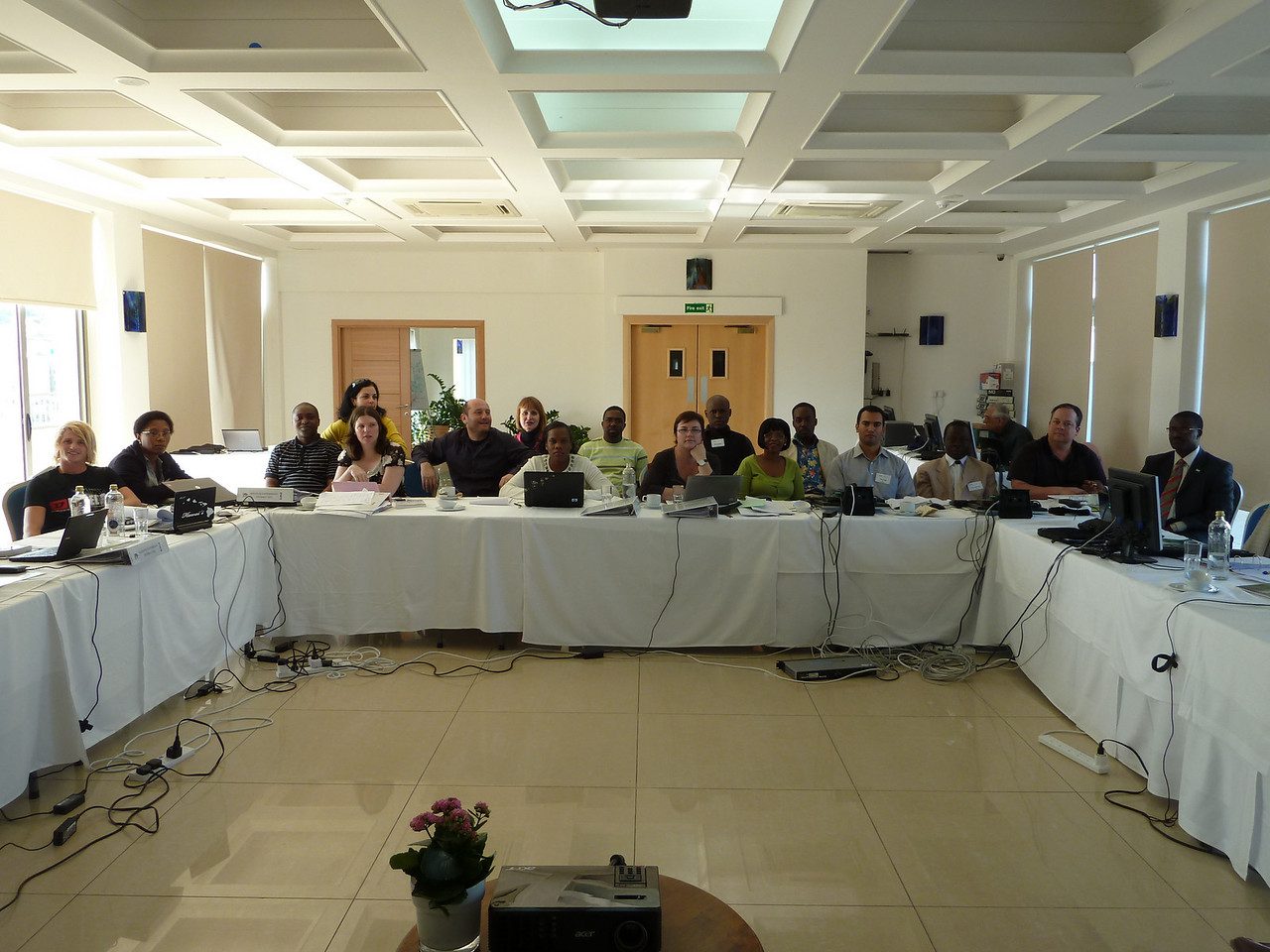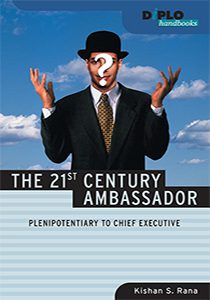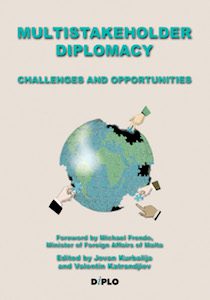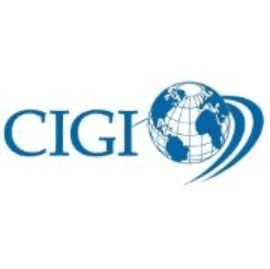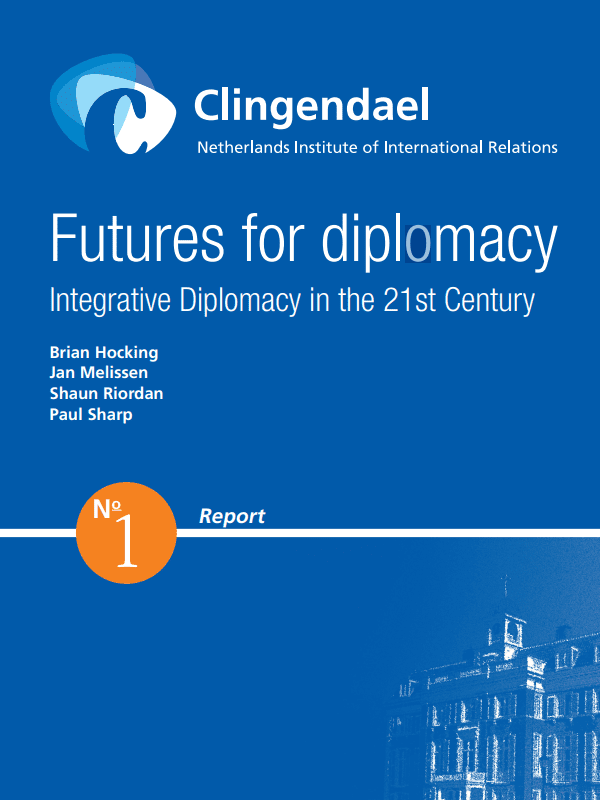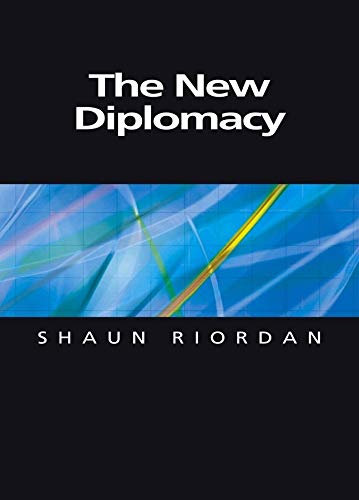The changing nature of diplomacy
The volume begins with Hon. Dr. George F. Vella’s opening address to the International Conference on Modern Diplomacy. Dr. Vella provides a general framework for discussion and identifies the main changes in modern international relations affecting diplomacy. It provides insight into several current concerns, including regional co-operation and preventive diplomacy. Dr. Vella highlights the important but often overlooked difference between diplomacy as a method of solving problems in human society and diplomacy as a profession. While diplomacy has been, is, and will remain an important method of harmonising relations in human society, especially among states, diplomacy as a profession can expect increasing competition from non-governmental organisations, the business community, and others who are rapidly acquiring diplomatic skills.
In his keynote address from the International Conference on Modern Diplomacy, Dr. Vladimir Petrovsky describes new challenges facing diplomacy. These challenges include technological progress, the relative decline in the sovereignty of the state, and the emergence of new actors such as NGOs, parliaments, and regional authorities. Diplomacy must function in a complex and sometimes paradoxical context characterised on the one hand by the process of globalisation and on the other hand by forces of fragmentation and localisation. In order to meet these challenges diplomats must adapt their methods of work to the new environment. They must become more open and agile. They must learn to fully utilise opportunities offered by the technological revolution. Modern diplomacy requires a variety of skills, in particular, a familiarity with the art of negotiation, an ability to work in a multicultural environment, and openness to co-operation with different actors, in particular, civil society.
Evolution of diplomacy
Professor Dietrich Kappeler introduces his paper with a survey of the evolution of diplomacy from the beginning of this century. He then examines new developments, methods, and tools of diplomacy which characterise the post-Cold War period. Among new developments he identifies are intervention in internal conflicts by the international community and the globalisation not only of economic co-operation but also of problems such as AIDS and the disregard of human rights and basic humanitarian principles. He also mentions the emergence of “public diplomacy,” meaning that the media has enabled the general population to become involved in international affairs. In analysing new methods, Professor Kappeler focuses on changes in traditional diplomacy, for example, the position of bilateral missions. He then describes the emergence of new actors in diplomacy such as NGOs, and the importance of “grass-root diplomacy,” especially in dealing with internal conflicts. The third part of the paper, dedicated to new tools of diplomacy, considers the potential use of new technology and networking in diplomacy.
Modern protocol
Professor Erik Goldstein’s contribution identifies modern developments in the field of diplomatic protocol. Some characteristics of modern protocol are a growing informality and a need to ensure that states are treated as equals. Professor Goldstein reviews the development of meetings between heads of states from historical times, when such meetings were difficult and dangerous, and therefore uncommon, to the present day, when technology and transport developments have allowed a drastic rise in summitry. A section of the paper is dedicated to the question of venue for meetings between heads of states, a frequent cause of diplomatic controversy. Professor Goldstein makes special mention of the modern phenomenon of the “diplomatic handshake,” and finally discusses the diplomatic insult.
Trends in modern diplomacy
The paper by Professor Paul Sharp focuses on two trends in modern diplomacy: increasingly institutionalised multilateralism aimed at a stronger international order and the “tendency to see diplomats in terms of the skills they possess and the jobs they do, rather than whom they represent.” Both of these trends move diplomats away from their roles as professional representatives of sovereign states. However, Professor Sharp points out that diplomats continue to derive their authority from the fact that they represent states. Recent failures in diplomacy can be attributed to over-ambitious attempts at establishing international order without enough support from individual states. Professor Sharp distinguishes between and explores four types of representation: representation as ceremony and symbolism, representing interests and power, representing ideas, and diplomatic representation and popular sovereignty.
Ms. Pamela Smith defines the key roles of public diplomacy: dissemination of information about the United States including US foreign policy, building international relationships and advising American foreign policy makers. She examines the modern context for public diplomacy, which is characterised by change. The growth of communications technology has allowed more public awareness and involvement in foreign policy making, and, as the public become more involved, the availability of reliable information becomes a crucial factor. Ms. Smith predicts that in the future the role of public diplomacy will be even greater, as these trends develop. However, she does not feel that technological developments will ever eliminate the need for face to face diplomacy, as personal contact seems to be necessary to build trust and mutual respect between states.
The first part of Ambassador Stanko Nick’s contribution is dedicated to the main functions and duties of a legal adviser to the foreign ministry. These are varied: advising the foreign minister, participating in the conclusion and ratification of international treaties, taking part in the delegation of his country, participating in the activities of international fora, representing his government before national and international courts, assisting in the incorporation of international law into the internal legal system, and conducting academic and research activities. Ambassador Nick then turns his attention to the position of the legal adviser in the diplomatic service and the government. The higher the level of legal order and democracy in a particular society, the greater the influence of the legal adviser on his minister and government as a whole. Ambassador Nick stresses the importance of the legal adviser’s being allowed intellectual and organisational independence. The minister, instead of acting post-festum, should consult and involve his legal adviser in making decisions. He points out that the legal adviser has an important function in developing new codes of international law.
Dr. Annabel Hendry addresses the position of spouses in modern diplomacy. Diplomatic services tend to neglect this important issue. According to Dr. Hendry, most diplomatic services adopt the attitude that spouses are not expected to do anything to support the service, but anything they choose to do is welcomed. She highlights the paradox that while spouses should show allegiance to the mission and function of the diplomatic service they do not have a contractual link, but only an accidental connection to the service. The paper discusses typical problems and difficulties for diplomatic spouses related to employment and careers, education of children, etc.
The evolution of diplomacy is analysed from a new and innovative perspective by Professor Richard Langhorne. The key element in his analysis is a concentration on the relationship between the needs and the functioning of the international system. Sometimes, the needs of the international system are met, or even defined, by successful evolution of the diplomatic method, for example, in 1815 and to some extent again in 1919. On the other hand, the emergence of the resident ambassador and the current period could both be mentioned as examples of situations where the needs of the system were not met by diplomatic methods until the need eventually provoked evolution. Current developments in the international system are characterised by the emergence of a much wider range of entities operating in international relations, diffusion of power in the fields of economics and telecommunications, and decline of the sovereignty of states. These changes and challenges need to be met with evolution of diplomatic methods, which we can expect to see in the forthcoming period.
Diplomacy under sanctions
Dr. Milan Mitic describes the problems encountered by a diplomatic service under sanctions, using Yugoslavia as a case study. After a general introduction to the sanctions imposed against Yugoslavia, he concentrates his analysis on the ways in which diplomatic relations between Yugoslavia and the outside world were affected. Internal effects of sanctions on the diplomatic service of Yugoslavia included a reduction of staff and a halt to the process of reform and adjustment within the diplomatic service. In terms of international relations, sanctions resulted in a reduction of the level of representation abroad to varying degrees. In some cases diplomatic relations were completely broken off (e.g., Malaysia and New Zealand), or consulates were closed (e.g., USA and Canada). In almost all missions Yugoslav diplomatic staff was reduced in level and number, and in some diplomatic corps Yugoslav diplomatic staff were personally isolated. Participation in multilateral diplomacy and international organisations was reduced or disallowed. Dr. Mitic clearly illustrates that normal or effective functioning of a diplomatic service is impossible under sanctions.
South African diplomacy
The topic of Professor Maria Muller’s paper is the evolution of South African diplomacy from a “pariah diplomacy” in the apartheid period to a more conventional type of diplomacy in the post-apartheid period. She concentrates on the ways and means of a diplomatic service adjusting to governmental changes. South African diplomacy has had to adapt to new fields within its foreign policy; for example, to intensive involvement in regional and global multilateral activities. Moreover, the diplomatic service has had to undergo profound changes in terms of internal organisation, human resources, and diplomatic networks.
Diplomatic privileges and immunities
Professors Linda Frey and Marsha Frey analyse the issue of international privileges and immunities of international functionaries. Diplomatic privileges and immunities, traditionally limited to diplomats, were gradually extended to the personnel of and representatives to international organisations in four stages: after 1804, after 1899, after World War I, and after World War II. The increasing number of people protected by international privileges and immunities and the potential for abuse of these privileges has raised a debate about the necessity of limiting diplomatic privilege. Those who defend diplomatic and international immunities find themselves on the defensive in an environment which is increasingly adverse to immunity from local jurisdiction and to privileges for any group.
The following two contributions are based on presentations delivered at the International Conference on Information Technology and Diplomacy.
The role of information technology
In his keynote address Professor Richard Falk discusses changes in modern society brought about by information technology, with special emphasis on the future of the state. Professor Falk draws a distinction in this context between IT as an instrument used by states in their quest for power and IT as an agent transforming market forces and various sectors of civil society. Using the example of the Gulf War, he highlights the extensive use of high-technology weapons systems, based to a large extent on IT. Topics related to the interplay between the role of the state and the emergent cyberworld are organised into three main clusters: a) world order as a mind-game; b) the emergence of a race between “soft power” and “soft targets;” and c) power versus powerlessness in the web of The Web. Although the prevailing tendency seems to indicate that IT will challenge the static world order based on the central position of the state, one should not exclude the possibility that IT could be used to stabilise and further strengthen the static state-centric world order.
Mr. Stefano Baldi explores potential uses of the Internet as a tool in diplomatic activities. He describes how the Internet is currently used in diplomatic procedure and suggests some technologies that could be profitably integrated into the operational structure of diplomatic services. Information resources of the United Nations and other international organisations are given special emphasis. Mr. Baldi reviews these resources and assesses their basic functionality. The paper includes many interesting illustrations, tables and comparative surveys.
Although each contributor in this volume approaches the issue of modern diplomacy from a different standpoint, based on his or her particular type of involvement in international affairs, a consensus is reached on the most important topics. All contributors agree that diplomacy must change to face new challenges. Some describe changes that are already occurring, while others identify or propose changes that need to begin. Most of the papers identify technological development and changes in international relations such as involvement of new groups, decline in the sovereignty of states, public diplomacy and globalisation as new challenges which diplomacy must successfully meet if it is to continue to exist.
The first part of this volume consists of papers from the International Conference on Modern Diplomacy. The papers in the second part were presented at the International Conference on IT and Diplomacy. After the opening address and the keynote address, papers appear in the order of their conference presentation.
The Diplomatic Studies Programme of the University of Leicester, in particular, the director of this programme Dr. Jan Melissen, suggested potential participants and helped publicise the International Conference on Modern Diplomacy. This volume is a result of the excellent assistance provided by Ms. Susanna Geismann in organising the conferences and contacting participants. Special thanks are due to Ms. Hannah Slavik for linguistic help and reading the proofs of the book. Mr. Anthony Butiggieg helped with scanning and collecting documents, and Mr. Chris Borg Cutajar designed the layout and completed desktop publishing work. Finally, I would like to express my gratitude to the former director of the Academy, Professor Fred Tanner, who supported the organisation of the conferences, and to Professor Felix Meier, current director of the Academy, who has provided full support for the publishing of this volume.
